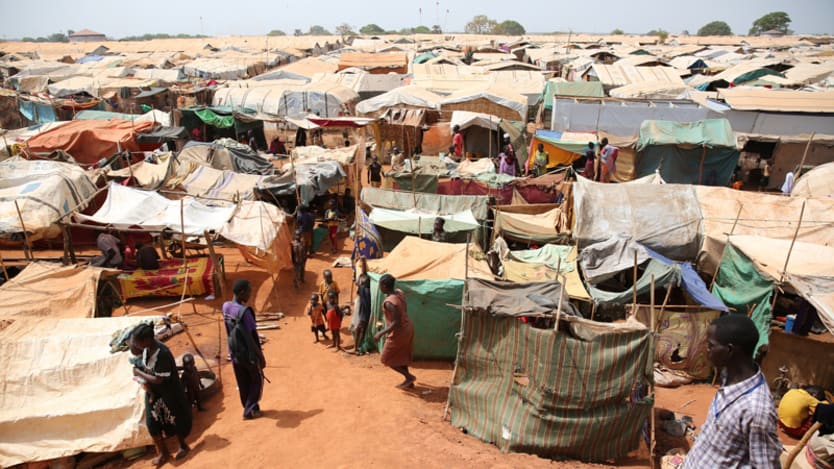
NAIROBI — South Sudan’s warring factions are meeting in Addis Ababa this week, with observers hoping that common ground can be reached to pivot the country towards peace. For humanitarian actors operating in the country, there are hopes that these peace talks will now open up access to parts of South Sudan that have been unreachable because of the conflict.
See more related topics:
► To gain access in South Sudan, humanitarians walk a political tightrope
► Lessons for aid workers in South Sudan
► Insecurity jeopardizes South Sudan famine relief
► Q&A: WFP and FAO chiefs on South Sudan’s creeping donor fatigue
Peace negotiations have been unsuccessful over the past few years, as feuding parties continually violate agreements. In 2015, President Salva Kiir signed a peace deal with rebel forces, but this deal has been repeatedly broken. In December, in attempts to revive the deal, the Intergovernmental Authority on Development, an East African trade bloc, brokered a cease-fire agreement. It was violated shortly after.
Observers are hoping that any negotiations that could result from the current talks will be backed by real consequences for those that fail to comply.
The Institute for Security Studies released a report on Wednesday that called for arrest warrants against violators of the peace deal, more authority for regional protection forces and United Nations peacekeepers to protect civilians, the enforcement of asset freezes and travel bans, and sanctions against the top leaders of warring factions.
Averting widespread famine
These peace negotiations are taking place as 1.5 million people in South Sudan are on the brink of famine and around 20,000 people are already living in famine conditions, according to the U.N.
South Sudan’s harvest season typically runs from September to October, which is expected to hold over the population through the “lean seasons.” This year, the lean season is slated to start three months early, in March, Francesco Lanino, acting country director for Mercy Corps in South Sudan, told Devex.
“The South Sudanese will have no other access to food, other than the [World Food Programme] and other humanitarian agencies. Worst case scenario, they need to move out of the country just to get some support," he said.
The humanitarian sector can only move stocks of food around by land during the dry seasons, which run from December to March, said Lanino. For the other months, it is largely dependent on delivery by plane.
In order to stave off famine in South Sudan, access to populations is key, said Lanino.
“Without having a cease-fire in place in the country, the most affected areas in South Sudan cannot be reached by any humanitarian agency,” he said. “When we talk about implementation of a cease-fire, it means we need to involve everyone, and every single armed group around the country.” This would mean moving from area to area, to make sure an effective cease-fire is put in place in all of the conflict zones.






